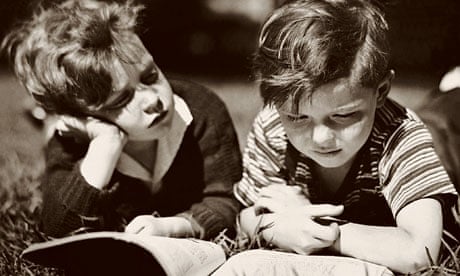Every morning I catch a surburban commuter train from central Paris to go to school in the small town of Sevres.
On this train, I count the number of people who are on their mobile phones or listening to personal media players. I also count the number of people reading a book or the newspaper.
In the end, the number of people on their phones is bigger than the number of people reading.
Over the last 15 years, mobile phones and media players have been invented, and more and more people look at screens. Ereaders, too, have become very popular. This has had both a positive and negative effect.
The positive is that people do not have to carry books around with them. The negatives are that ereaders in particular - and downloading books - cost money, which is a thing most people do not have a lot of. Libraries, however, are usually free (at least they are in Paris and there is always a local library here, but I think lots of them are disappearing in the UK). The invention of ereaders and of book-selling on the internet means that lots of small bookshops and some smaller publishers have had to close down as they cannot compete in the marketplace. Here in Paris, foreign language bookshops - particularly English ones that used to be gathering places for writers and intellectuals living here - are having to close as their books are always available at much cheaper prices on the internet. A very lovely one, called 'The Village Voice', will be the latest casualty. It will sadly have to close by the end of June.
Reading for pleasure is very important for developing a child's social behaviour. Screens and computer games instantly attract a child so they often prefer to play computer games rather than read a good book. Other children cannot find the time to read. In a school week, children have homework (in France, we always have lots and the school day ends late) and activities to do, and so in order to get back to that great book, they have to stay up late reading in bed. During the school holidays, the same thing often happens. To read, you have to have your own imaginative space - time to just be.
Various European governments have set up charities to encourage children to read and to support reading in general. Here in Paris we are very lucky; there are still lots of small French bookshops just for children and they often organise free activities such as storytelling, or illustrating, painting, or meeting authors. However, the financial crash means that funding for many projects has been cut - particularly projects that are the most important.
Parents are encouraged to read to their children for at least twenty minutes a day. One really good idea is to encourage young or beginner readers to read aloud to a family pet, particularly a dog. A project has been set up called Danny the Greyhound to help people do this. It encourages young minds to read aloud because a dog does not interrupt or correct mistakes - he just listens.
The United Nations Development goal is to have all children going to school by 2015. In 1999, 105 million children did not go to school. Now, in 2012, 69 million children are still not in school. This is a great improvement. However, these figures do not mean that children necessarily have a good education. There is a lack of books, material and qualified teachers. The most urgent need is for books because it is so important to get children reading.
When Doris Lessing won the Nobel Prize for Literature in 2007, her acceptance speech was very much about the importance of books and reading for children. She talked about a young African mother who was going to fetch water with her children during a drought. She finds a scrap of paper from Leo Tolstoy's Anna Karenina. She reads it and it helps her to keep going and to have hope for the future.
"She thinks, 'My teacher said there is a library, bigger than the supermarket, a big building and it is full of books.' The young woman is smiling as she moves on the dust blowing in her face. 'I am clever', she thinks. 'Teacher said I am clever. The cleverest in the school, she said. I was. My children will be clever, like me. I will take them to the library, the place full of books, and they will go to school, and they will be teachers - my teacher said I could be a teacher. My children will live far from here, earning money. They will live near the big library and enjoy a good life'."
Do you think Paris Girl is right? Join the site and send us your thoughts!
